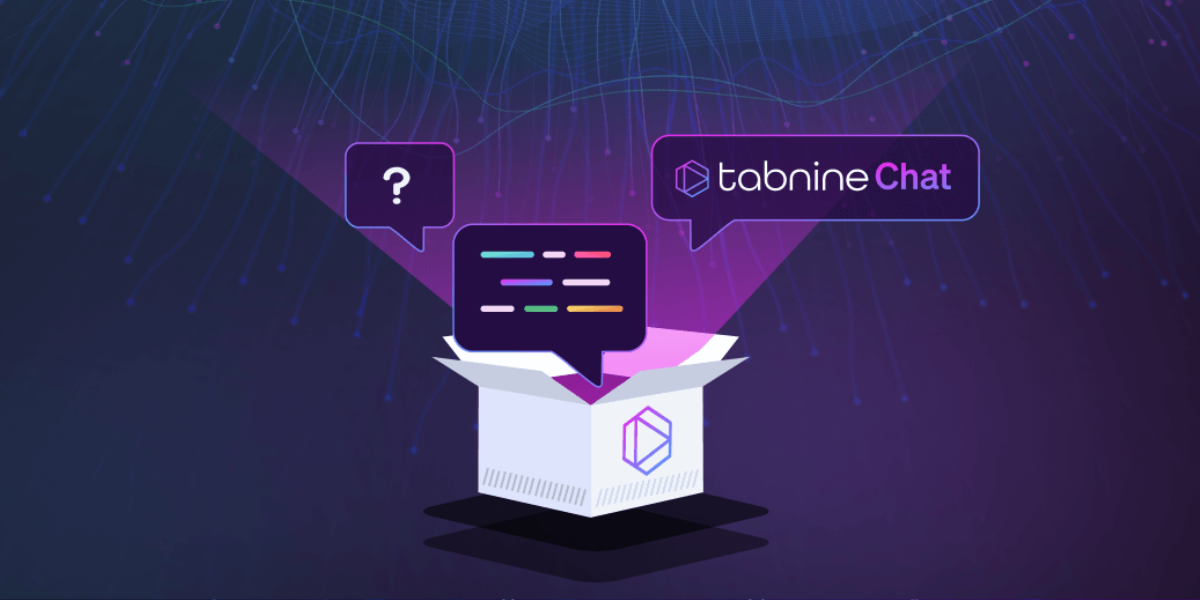What Is Vibe Coding? The New AI-Driven Coding Trend You Should Know
5 minutes read
Audio description available
March 18, 2025
Vibe coding is the latest innovation that has been taking the tech world by storm. Aimed at making the development process more intuitive, efficient, and fun, vibe coding harnesses the power of artificial intelligence (AI) to assist developers in their work. Whether you're a seasoned coder, a business exploring new trends, or someone curious about the future of technology, vibe coding is something you’ll want to know about.
In this article, we'll dive deep into what vibe coding is, how it works, its key tools, and why it’s so impactful across various industries. Keep reading!
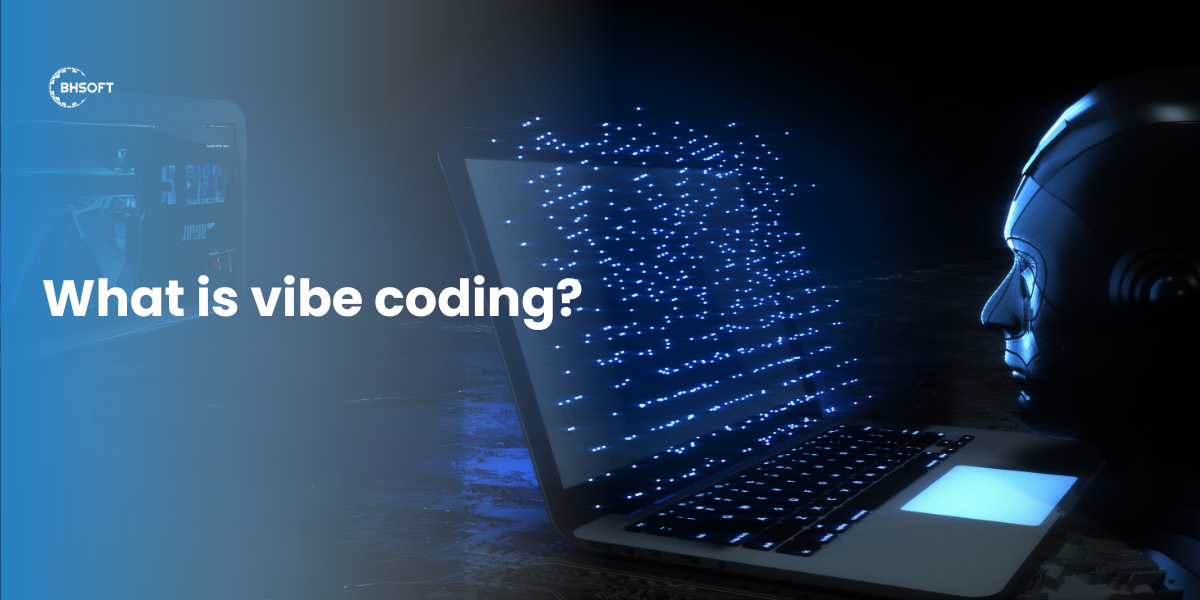
What is Vibe Coding?
At its core, vibe coding refers to an AI-assisted programming approach where developers use natural language prompts and AI tools to generate code, rather than writing every line manually. The AI system produces software based on instructions and feedback, allowing developers to work faster and with less repetitive effort.
Unlike traditional coding, which requires expert mastery of syntax and structure, vibe coding often lets you describe the intent of what you want to build. The AI does the heavy lifting—writing, suggesting, and even optimizing code—so you can focus on high-level logic and creativity.
This shift doesn’t replace developers; instead, it augments how they work by removing tedium from routine tasks and accelerating development workflows.
Key Advantages of Vibe Coding
- Faster Development Speed: Enables rapid prototyping and reduces time spent writing repetitive boilerplate code.
- Beginner-Friendly Approach: Allows non-technical users to build basic applications by describing ideas in natural language.
- Enhanced Creative Focus: Frees developers from routine tasks so they can focus on problem-solving and innovation.
- Agile-Friendly Workflow: Supports fast iterations, experimentation, and continuous improvement aligned with Agile practices.
Limitations and Challenges of Vibe Coding
Despite its benefits, vibe coding comes with important challenges:
- Code Quality and Performance: AI-generated code may be inefficient or poorly structured and often requires manual optimization.
- Debugging Complexity: Auto-generated code can be harder to debug due to unclear logic or inconsistent structure.
- Security Risks: AI may overlook security best practices, increasing the risk of vulnerabilities if not carefully reviewed.
- Not a Human Replacement: AI cannot replace strategic thinking, system architecture design, or business decision-making.
How Does Vibe Coding Work?
Vibe coding works by integrating generative AI tools—often powered by large language models (LLMs) like ChatGPT, Codex, Sonnet, or Claude—directly into your development workflow. These tools can:
- Interpret natural language prompts to generate code
- Suggest completions and optimizations in real time
- Debug or refactor existing code
- Automate repetitive tasks, such as boilerplate creation or formatting
Developers interact with these tools inside common IDEs and editors, gradually training the AI to adapt to their styles and preferences. Over time, the interaction becomes more intuitive and personal.
While AI generates much of the code, the human developer still guides architecture decisions, tests functionality, and validates output—ensuring code quality and alignment with project goals.
Vibe Coding Implementation Process
IBM outlines a clear, practical workflow for adopting vibe coding in real-world development:
1. Choose the Right AI Platform
Select an AI-powered coding tool that fits your workflow, such as Replit, GitHub Copilot, or IDEs with built-in AI assistants.
2. Define Clear Requirements
Write precise prompts that clearly describe the expected functionality, logic, and constraints to guide the AI effectively.
3. Generate and Refine Code
The AI produces initial code based on the prompt. Developers then refine the prompt and iterate until the output meets technical and business needs.
4. Review, Test, and Finalize
AI-generated code must be reviewed, tested, and optimized by developers before deployment to ensure quality and reliability.
Learn more: Cloud app development services in Vietnam
Some popular vibe coding tools
To understand vibe coding better, let's take a look at some of the most popular vibe coding tools that are being used today:
Replit – An All-in-One Coding Platform
Replit is a cloud-based platform designed for both beginners and professionals. It allows developers to write code in dozens of languages, run programs, and collaborate in real-time. Its integrated AI assistant helps suggest code completions and automate many routine coding tasks.
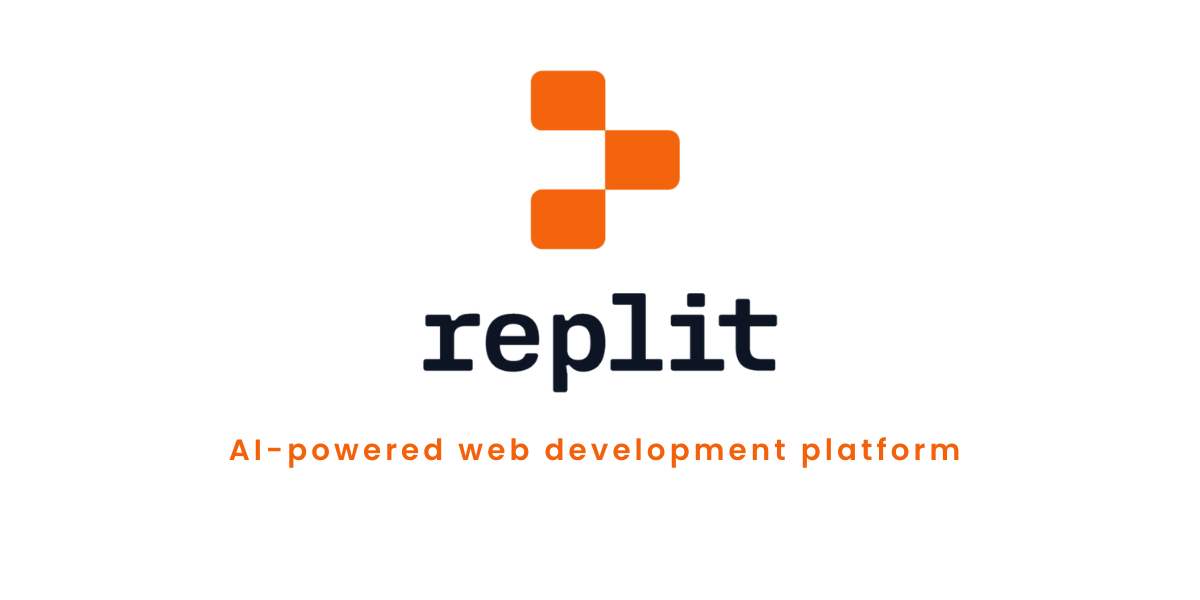
Features:
- Supports over 50 programming languages.
- Real-time collaboration.
- AI-powered code suggestions and completions.
- Whether you’re a solo coder or part of a team, Replit offers a comprehensive, AI-enhanced environment for everyone.
Watch a Replit live demo here
Cursor – AI Assistant for Developers
Cursor is an AI-powered coding assistant that focuses on automating common coding tasks like refactoring, debugging, and optimizing code. By integrating Cursor into your coding environment, you can save significant time on tasks that would otherwise require manual work.
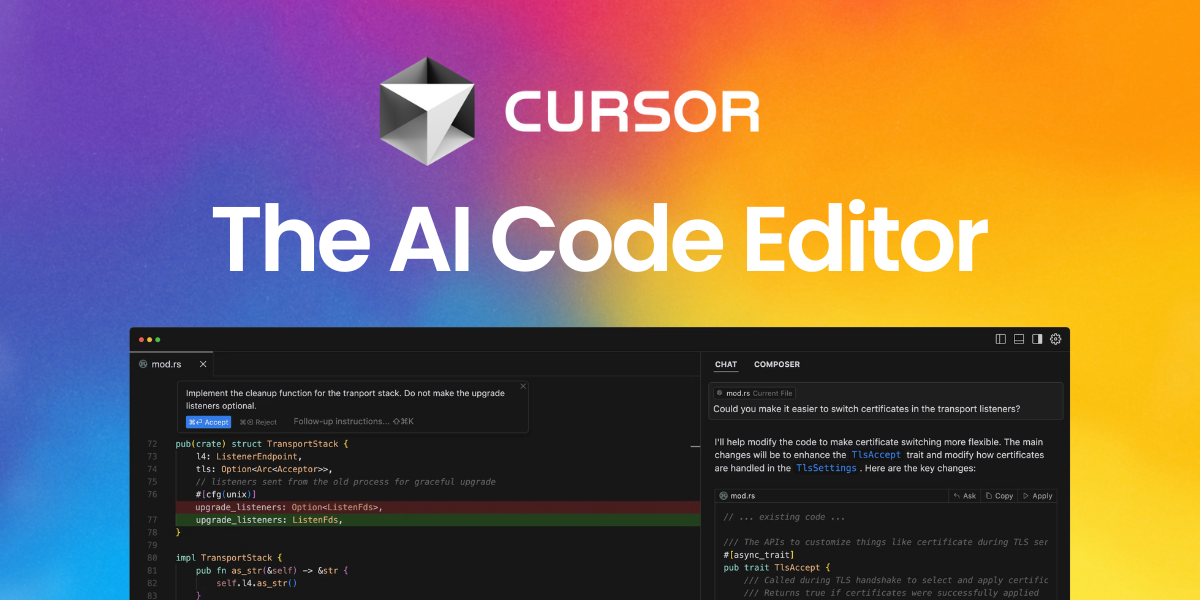
Features:
- Automated refactoring.
- Intelligent code suggestions.
- Seamless debugging assistance.
- Perfect for developers who want to streamline their workflow, Cursor helps tackle the repetitive tasks that can bog down your development process.
Codex – AI-Powered Code Generation
Codex is the AI model developed by OpenAI that powers GitHub Copilot. With Codex, developers can generate code from simple descriptions in natural language, allowing them to write code much faster. It’s like a pair of extra hands that understands exactly what you want to build.
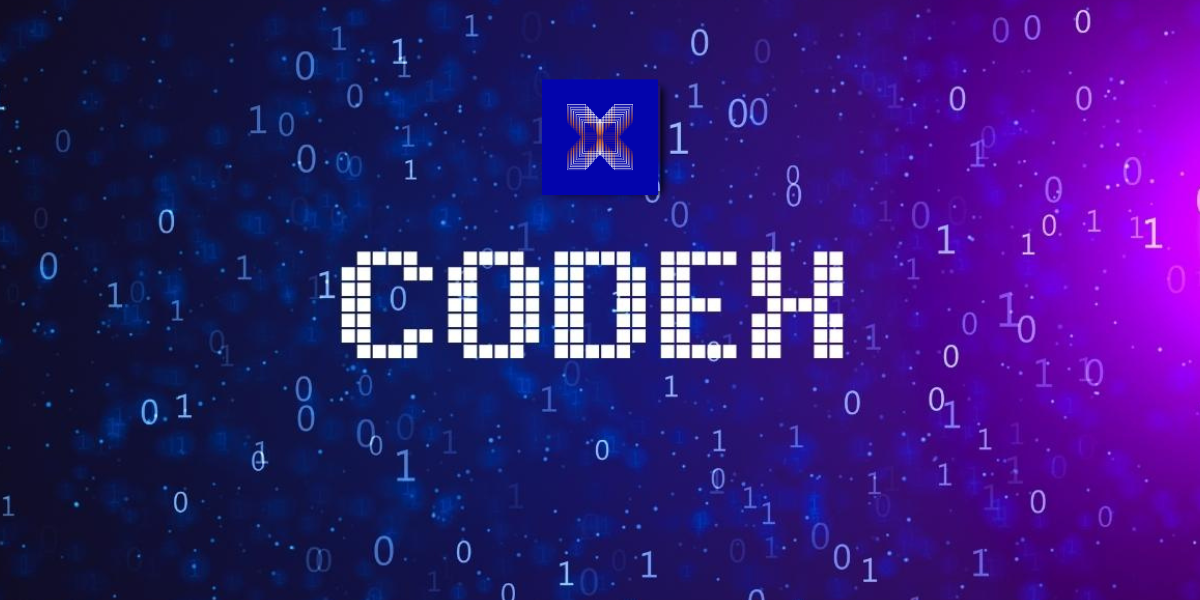
Features:
- Code generation from natural language prompts.
- Integrates with VS Code and other popular IDEs.
- Supports a wide range of programming languages.
- Codex has revolutionized how developers write code by making it possible to generate entire functions just by describing them in plain English.
Tabnine – Personalized Code Completion
Tabnine is an AI code completion tool that integrates with popular IDEs and provides personalized suggestions based on your previous code. It speeds up the development process by offering context-aware completions, helping developers save time on writing repetitive code.
Features:
- Supports popular IDEs like VS Code, IntelliJ, and Sublime Text.
- Personalized, context-driven code suggestions.
- Works offline to keep your data secure.
- Tabnine is ideal for developers who want to write cleaner code faster, especially when working with large codebases.
The Impact of Vibe Coding
Vibe coding isn't just about faster code generation—it’s transforming the way developers approach problems. Here's why vibe coding is a game-changer:
Increased Efficiency
By automating repetitive tasks like code generation, debugging, and refactoring, vibe coding tools reduce the time developers spend on mundane tasks. This allows them to focus more on creative problem-solving, feature development, and innovation.
Enhanced Collaboration
Many vibe coding tools, like Replit, are built for collaboration. Teams can work on the same codebase simultaneously, whether they’re in the same room or halfway across the world. The AI tools even help ensure that the code quality remains consistent across the team.
Reduced Errors and Bugs
AI tools can identify common coding mistakes and suggest fixes before they become bigger issues. This leads to cleaner code with fewer bugs, helping developers create more reliable software.
Accessibility for Beginners
Vibe coding tools also lower the barrier to entry for new developers. Tools like GitHub Copilot can assist beginners by providing code suggestions and learning from their input. This enables less experienced coders to develop at an accelerated pace, helping them become proficient more quickly.
Criticism and Risks
While vibe coding shows promise, it also raises important concerns in 2026:
- Quality and Security: AI-generated code may work but often lacks deep structure and security auditing. Recent benchmarking research shows many AI outputs are functionally correct but insecure, underscoring the need for human oversight.
- Limited Deep Understanding: Relying solely on AI can create codebases that developers don’t fully understand, increasing technical debt and reducing maintainability.
- Misconceptions About Coding: Some purists argue vibe coding downplays rigorous engineering practices, leading to over-reliance on AI without learning foundational skills.
Vibe Coding and Its Future
The future of vibe coding is incredibly promising. As AI continues to improve, vibe coding tools will become even more intuitive, offering developers increasingly sophisticated assistance. Here are some trends we expect to see in the future:
- Greater Customization: AI tools will become even more personalized, learning the coding habits of individual developers to offer more tailored suggestions.
- Full-Cycle Development: Vibe coding tools might eventually handle entire aspects of software development, from generating user interfaces to testing and deployment.
- Cross-Platform Integration: We could see better integration of vibe coding tools across various platforms, such as mobile app development, data science, and even hardware programming.
- As AI evolves, vibe coding will continue to play a pivotal role in shaping the future of software development, making coding more accessible, faster, and error-free.
Future Trends of Vibe Coding
IBM and industry research highlight several directions for vibe coding’s evolution:
Multimodal Coding: Developers will use voice, images, and text together to create and refine code.
Real-Time AI Collaboration: AI agents will provide live suggestions inside IDEs as developers describe ideas or make changes.
Human–AI Co-Creation: Vibe coding will evolve toward collaboration, where AI supports developers rather than replacing them.
Conclusion
Whether you’re a professional developer, an aspiring coder, or simply someone curious about the future of technology, vibe coding is a trend worth watching. It’s transforming the software development landscape—making processes faster, more collaborative, and more efficient. As AI tools continue to advance, they will drive innovation and elevate coding practices across every industry.
At BHSoft, a trusted Vietnam software development company, we embrace the future of AI-assisted development to deliver smarter, more efficient solutions. If you’re ready to experience the power of vibe coding, contact us today and take the first step toward a new era of intelligent software creation.
FAQs
1. Can vibe coding replace human developers?
- No, vibe coding tools are meant to augment the coding process, not replace human developers. They help automate repetitive tasks and provide suggestions, but developers still make the final decisions.
2. Are vibe coding tools suitable for beginners?
- Yes, vibe coding tools like GitHub Copilot and Replit are designed to assist both experienced developers and beginners. They can help newcomers by offering code suggestions and guidance.
3. What programming languages do vibe coding tools support?
- Most vibe coding tools support a wide range of programming languages, including Python, JavaScript, Java, Ruby, and more. Some tools even support more niche languages.
4. How do vibe coding tools improve collaboration?
- Vibe coding tools like Replit allow multiple developers to work on the same codebase in real-time, improving teamwork and ensuring that the code quality stays consistent across all contributors.
5. Will vibe coding tools become more advanced in the future?
- Yes, as AI continues to evolve, vibe coding tools will become even more intuitive and personalized, offering developers more advanced features and assistance in the development process.
Read more: GIS in Real Estate: Unlocking Location Intelligence


